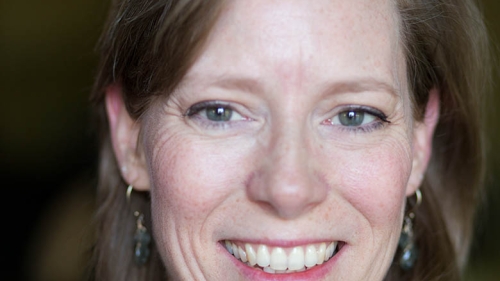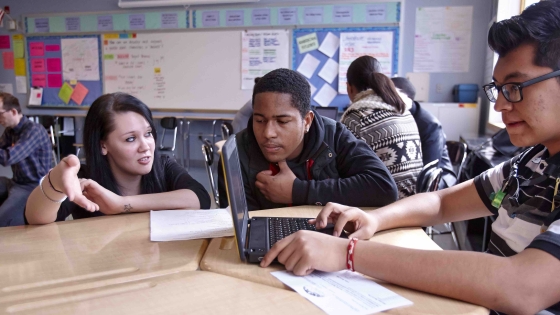
The Research Alliance for New York City Schools has announced the appointment of Dr. Cheri Fancsali as the organization’s new Deputy Director. In this role, Fancsali will focus on expanding partnerships and ensuring that evidence from Research Alliance studies is used by policymakers and educators, as they work to improve outcomes for NYC students.
“Cheri brings a remarkable track record of successful research conducted in partnership with education stakeholders,” said James Kemple, the Research Alliance’s Executive Director. “I am delighted that she has agreed to take on a more visible and influential role.”
Dr. Fancsali has served as the Research Alliance’s Research Director for nearly four years. Prior to joining the Research Alliance, she served as the Managing Director of Education Research for IMPAQ International and as the Director of Research and Evaluation for AED’s Center for School and Community Services.
In her new position, Dr. Fancsali will continue to manage several notable Research Alliance studies, including the evaluation of NYC’s Computer Science for All initiative, the National Science Foundation-funded Maker Partnership, and a study of ExpandED’s Design2Learn afterschool initiative. In addition, as Deputy Director, Fancsali will lead efforts to develop productive new collaborations with the New York City Department of Education, other local stakeholders, and education researchers across the country.
“I am excited to contribute to the important work of the Research Alliance in a new capacity,” said Dr. Fancsali. “I will be focusing on the vital role that partnerships play in our work and on making sure that evidence is used to shape and inform policy and practice. I look forward to continuing to support the Research Alliance’s mission by engaging with our stakeholders on the issues that matter most for NYC’s public school students and their families.”
Dr. Fancsali has over two decades of experience conducting research on school- and community-based educational programs for underserved youth. Her areas of expertise include teacher effectiveness and professional development, school reform, STEM and computer science education, afterschool initiatives, and social and emotional learning. Much of Dr. Fancsali’s career has focused on helping practitioners and policymakers use evidence more effectively. She has developed and facilitated processes for teachers and administrators to use implementation and outcome data to improve their programs. Her recent article in Afterschool Matters provided practical guidance for researchers and practitioners about how they can successfully collaborate.
Several current partners celebrated Fancsali’s new role. "Schools That Can is thrilled that Cheri Fancsali will be the next Deputy Director for the Research Alliance for New York City Schools,” said Casey Lamb, Chief Operating Officer of Schools That Can. “Over the last several years, we have had the opportunity to collaborate closely with Cheri as part of the Maker Partnership Program. Cheri is a true professional, an insightful researcher, and a collaborative partner. We look forward to continuing our work together and to seeing what's in store for the Research Alliance!"
Debbie Marcus, Executive Director of Computer Science Education in the NYC DOE’s Office of Postsecondary Readiness, stated, “Cheri Fancsali and the Research Alliance have been exceptional partners for the New York City Department of Education’s Computer Science for All Initiative. The collaboration has enabled us to better understand the impact and scale of our work and has helped inform our programmatic direction.”
Dr. Fancsali’s 2019 brief, Special Education in New York City, explored the characteristics of the 200,000-plus NYC students with an Individual Education Plan, the settings in which they are served, and their engagement with school. The study highlighted notable disparities associated with gender, race, and neighborhood income, and drew attention to high rates of “severe chronic absenteeism” among students with disabilities, particularly those classified with “emotional disturbance.”
Read more about Dr. Fancsali’s work.

